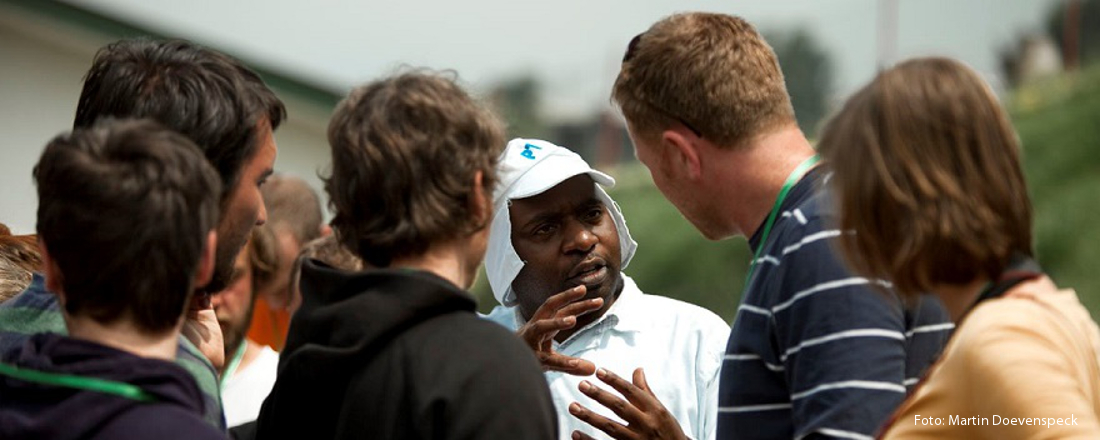Navigating Module Area E
General Overview
Module Area E takes a crucial role within the programme by providing ample space for individual development and practical experience.
Module E1 is meant to deepen your skills within the programme by selecting additional classes from your own disciplinary focus or from the other disciplines involves. This offer you the possibility to choose from standard classes in the other areas of specialization or to build your very own profile by enhancing your disciplinary, methodological or thematic profile. Upon request, you can therefore equally select any other course on campus that is related to contemporary issues of development if the respective lecturer agrees. Equally, it is possible to enhance your language skills beyond the mandatory (English and German). Only language classes that lead, at least, to the competence level B2 can be accepted for E1 and they depend on the Language Centre’s offer and availability.
Module E2 serves as the opportunity to gain practical insights into the ‘development business’ or development-related research. The lenght of your internship should be at least 8 weeks. It is concluded by the submission of an internship report, which includes an internship diary, besides the employer’s confirmation that you have successfully completed the internship. This confirmation needs to be official in character, carry your name and the precise dates of your internship.
Please find more detailed information in the sections below, which we recommend to read very carefully, before starting your E*ndeavour!
E1 – individual Deepening or Catching-up
Content depends on the student’s individual planning, but will always be related to contemporary issues of development or skills required to undertake the internship and/or Master’s research. At least 8 ECTS points have to be collected by participating in the exams according to the respective lecture or seminar requirements. Grades are not relevant for the final grades. It suffices to pass the classes.
Three major options co-exist:
1. Any two classes associated with the B-C-D modules, of which one class requires active participation only (2 ECTS credits).
2. Integration of individually selected classes, of which the relevance for the degree programme was agreed with the programme advisor, beyond Option 1.
3. Two language classes other than English or German, and not below level B2.
You should register online with the relevant courses contributing to module E1 as a participant. In most cases, you will also be able to register for the exam via CampusOnline. Register with a ‘free registration‘ and get in touch with the programme coordinator if issues occur. This may be the case if you pick a class that has not been opened for E1 yet (which is the more likely, if you seek to include a specific class from campus that goes beyond the usual canon of the programme).
E2 - Professional or Research Internship
The professional internship links knowledge in development politics with practical, professional experiences in relevant institutions, organizations or in the economic sector. Afterward, experiences are reflected on and written down in a report. Thus, it is possible to connect personal experiences with theoretic-conceptual questions. Alternatively, it might be possible to accredit a conducted research internship with an empirical research project related to development questions at the University of Bayreuth or at an external research institute. The availability of research internships depends on adequate possibilities at the relevant chairs.
If you found an opportunity to conduct a research internship, please contact the programme advisor to discuss your individual case. In any case of doubt discuss your ideas with the programme coordinator or the programme advisor.
- Where to find a professional internshipHide
-
Typical places for internships are (German) development-related NGOs, mostly headquartered in Berlin, but also a bit all around Germany. International organizations – (inter)governmental or non-governmental – are typically located in Berlin or the former German capital city Bonn, which has evolved into a centre for the United Nations, among other opportunities.
You might also want to consider International Organizations and NGOs in other European countries or at the European level in Brussels. Furthermore an Internship with potential future employers in your country of origin can be an interesting option. In extension, you might equally want to check the representations of your country of origin in Berlin (not rarely they may be focussed on development-relations), Brussels or with the development-relevant organisations of the U.N. system in Vienna, Paris, Geneva and elsewhere.
To provide you with a few ideas, we listed a selection of potentially interesting places for internships, of which APRI and Doorways have emphasized their interest in receiving applications from our study programme:
- African Policy Research Institute (APRI), Berlin
- Doorways, Barnstedt
- Bundesministerium für Wirtschaftliche Zusammenarbeit und Entwicklung (BMZ - Federal Ministry for Economic Cooperation and Development), Bonn & Berlin
- Engagement Global, Bonn
- Deutsche Gesellschaft für internationale Zusammenarbeit (giz - Corporation for International Development Cooperation), Bonn & Berlin
- German Institute for Development and Sustainability (IDOS), Bonn & Berlin
- Kreditinstitut für Wiederaufbau (KfW – German Investment Bank), Frankfurt
- OXFAM, Berlin
- PLAN International, Hamburg
- United Nations, Bonn
- Welthungerhilfe, Bonn & Berlin
- Further there are a number of political foundations in Germany that are active in the development context
- Reporting and Accounting for CreditsHide
-
After you completed your internship you have to hand in a proof of internship by your employer and an internship report (see template). Please submit all of your documents at once to developmentstudies@uni-bayreuth.de until further notice.
- Anvenues of Advice and Support Hide
-
For general advice and orientation, please, contact the Programme Coordinator:
Dr Barbara Polak, barbara.polak@uni-bayreuth.de
In the case of specific issue or upon recommendation of the Programme Coordinator, please contact the Programme Advisor:
Professor Alexander Stroh-Steckelberg, developmentstudies@uni-bayreuth.de
- Statement of compulsory internshipHide
-
If you need proof that the internship is compulsory for you please send an e-mail to politikafrikas@uni-bayreuth.de.
We will provide you with the respective document.

